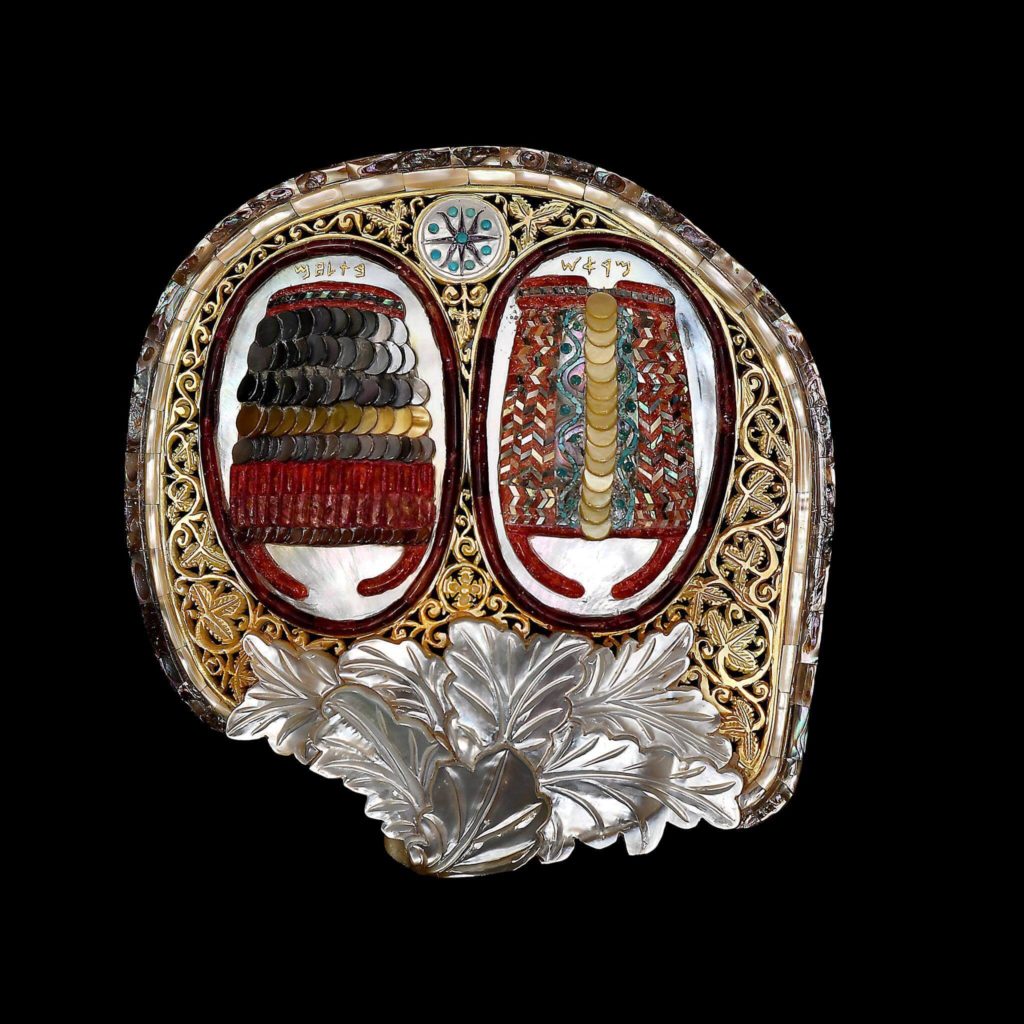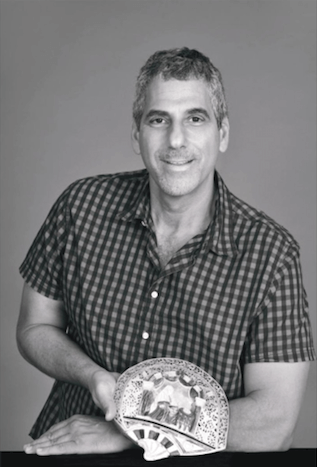
Enrique Yidi, b. 1960, Barranquilla, Colombia.
Lives and works between Barranquilla, Colombia, and Bethlehem, Palestine.
Enrique Yidi is a creative soul in constant evolution. Born to a Bethlehemite family on the Colombian Caribbean Coast, this third-generation Palestinian engineer from Purdue University, businessman, artist, and prolific researcher and collector, has devoted his life to safeguarding the unique Palestinian art of mother-of-pearl carving. In 1998, he founded Taller Palestina, an artistic workshop with local Colombian artisans under his instruction, with the initial mission of restoring old art pieces and later creating its own. The workshop also ensures the continuity of this endangered tradition in the realm of safety provided by its new Diasporic dwelling.
In over two decades, Taller Palestina has produced around 3,500 art pieces that are currently held in museums, private collections, or have been commissioned for political and religious leaders from around the world. Enrique Yidi’s work has been showcased worldwide and in 2011, he opened in Barranquilla the biggest museum of Palestinian mother-of-pearl art, with artefacts spanning from the 16th to the 20th century. He has also given lectures and curated private mother-of-pearl collections around the world which were previously mislabelled or insufficiently identified, and has co-authored several books, most notably “El arte palestino de taller el nácar. Una aproximación a su estudio desde el Caribe colombiano” (2005), a seminal work on the history and evolution of this Palestinian tradition.
Complementary to the work of Taller Palestina in the fields of restoration and conservation, Enrique Yidi is an artist himself that has traveled to Palestine on several occasions to share his knowledge and inspire others with his mission. His current artwork reflects his Diasporic identity: Palestine and the Caribbean meet through the introduction of non-traditional materials like emeralds, Caribbean seashells, and semiprecious stones in the different mother-of-pearl art pieces he creates.
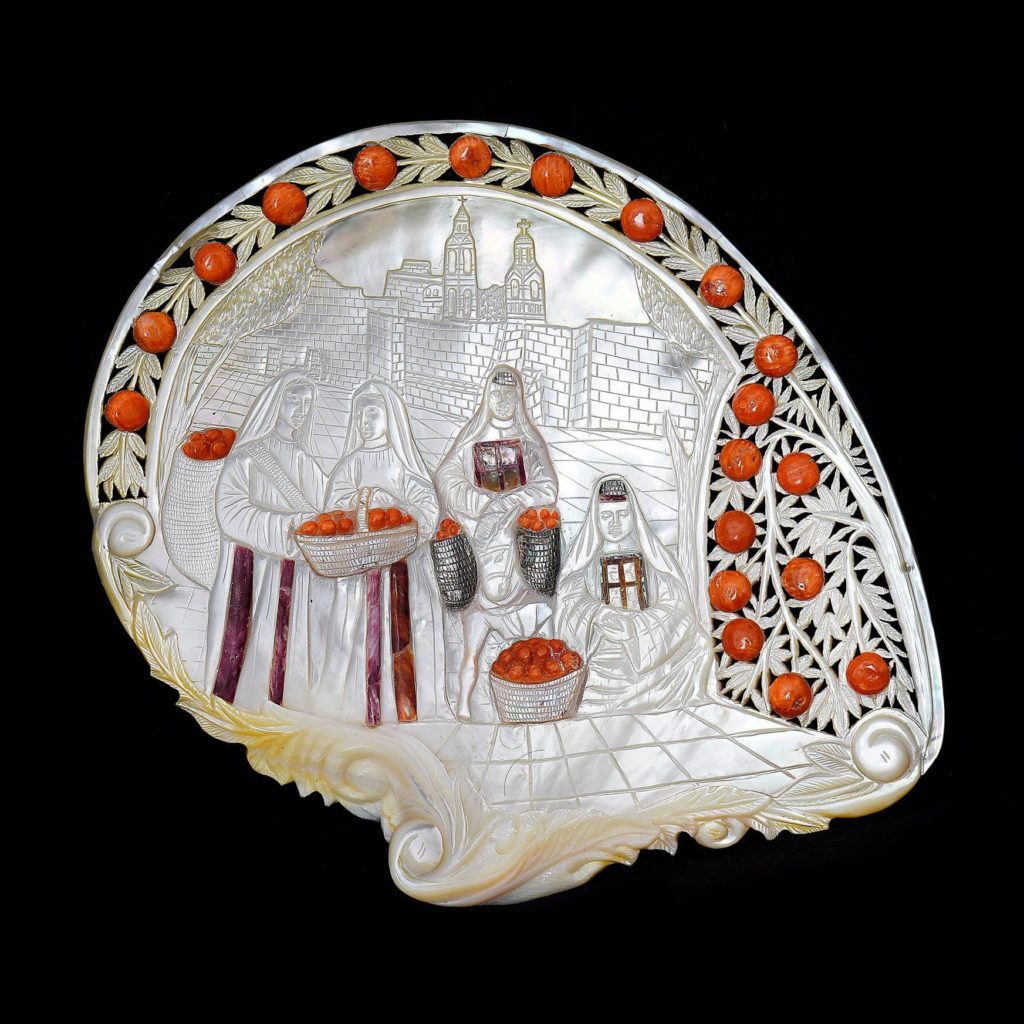
“The seas and their deep blue colors confirm that Colombia and Palestine are very much apart. However, the Mediterranean and the Caribbean enter a dialogue and reunite thanks to the histories of thousands of families which have been shared, fractured, migrated, and returned, and that wrestle tirelessly to find their voices and roots.”

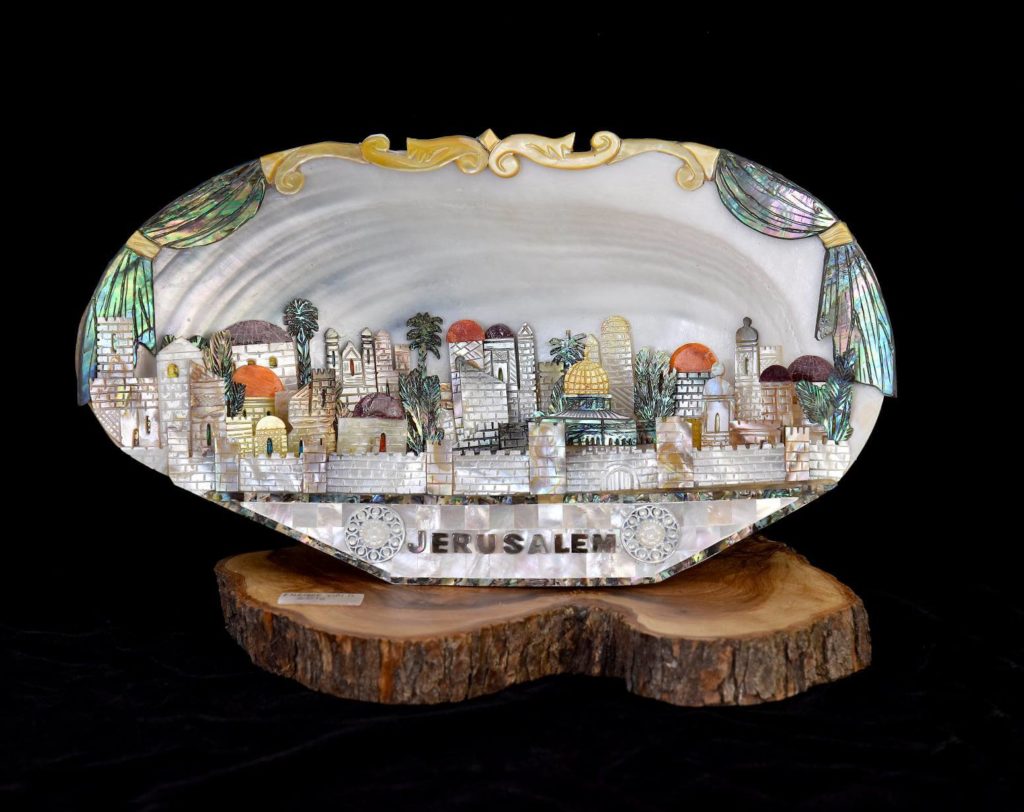
“From the Diaspora to the motherland, in the universal language of art, across the challenging seas, and while overcoming the most ignominious historical challenges, today the Palestinian people, their traditions, arts, and above all memory survive and are enriched by the work of its offspring spread throughout the world.”
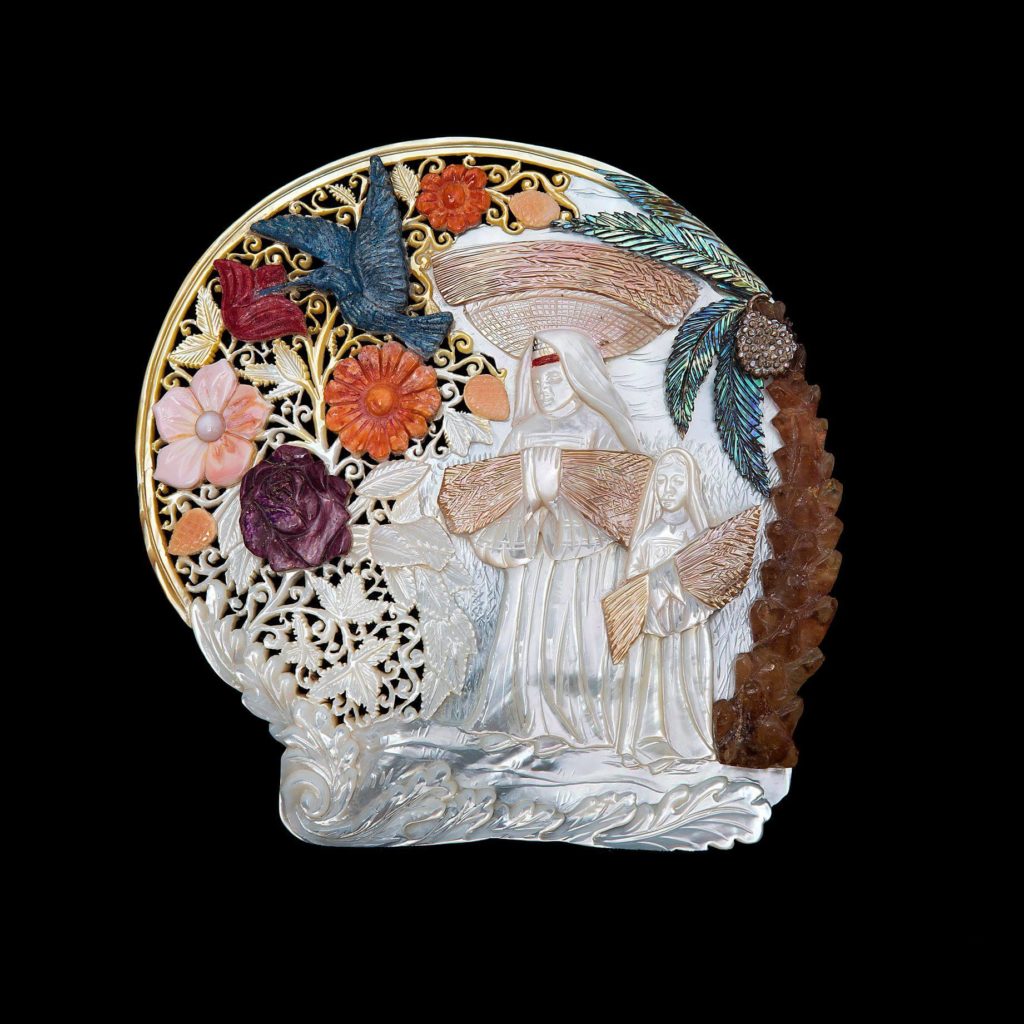
“My job has been to amplify the Palestinian art of mother-of-pearl carving and today in most government palaces in Latin America there is a work from Taller Palestina. This has enabled a rediscovery of the important role of migration in Latin America. [With Arab migration,] valuable pieces of mother-of-pearl art opened the doors for [migrants’] rapid integration into societies in these countries, at a time of strong discrimination against individuals who had been subjects of the Ottoman Empire, of which the countries of the Levant were part.”
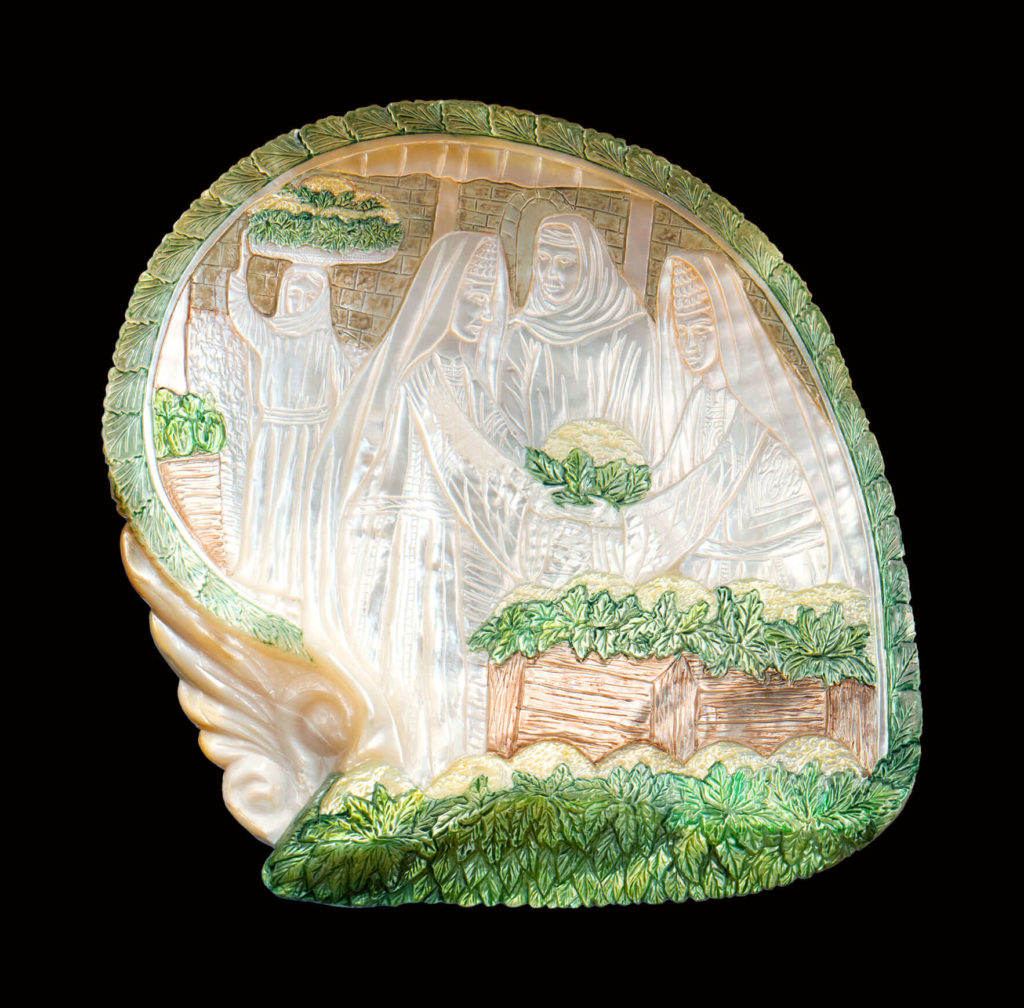
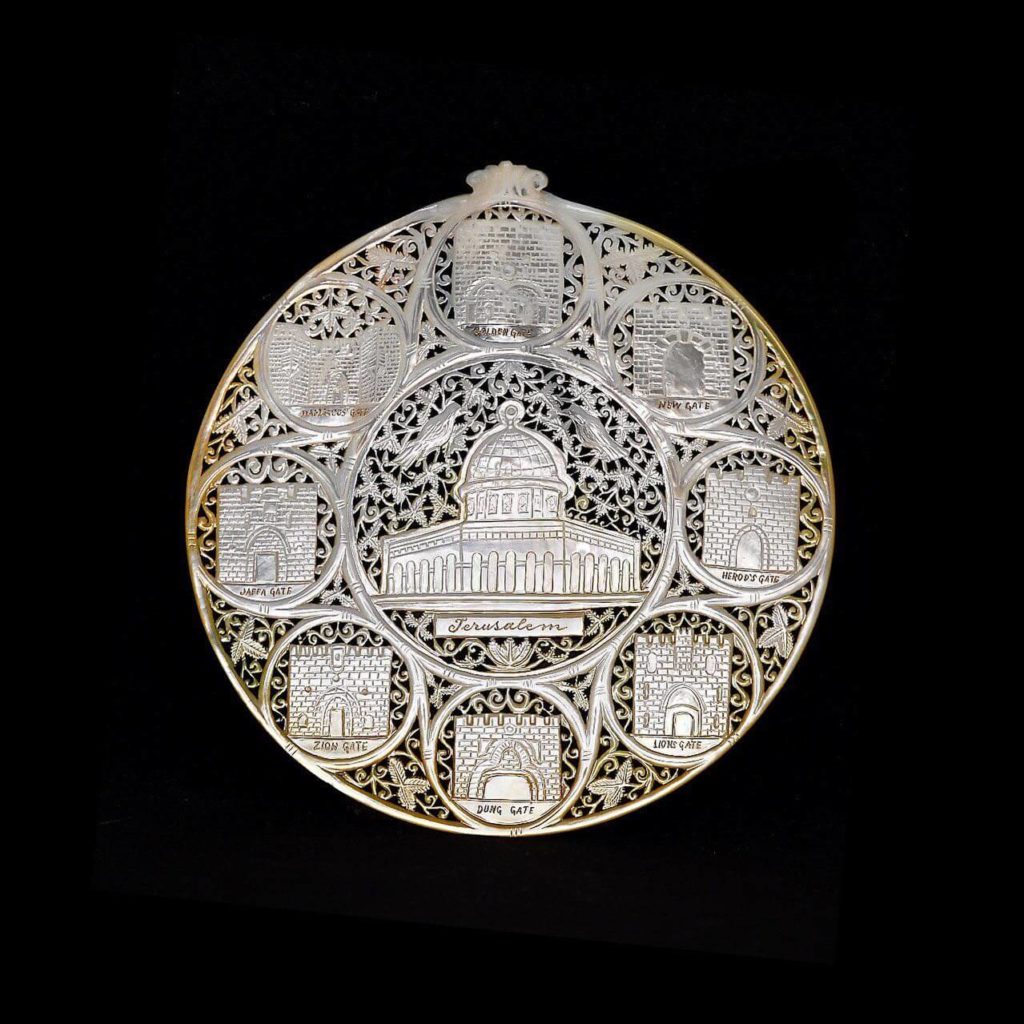
Taller Palestina was founded by Enrique Yidi in the city of Barranquilla (Colombia) in 1998, with the aim of transplanting, preserving, and disseminating the Palestinian legacy of the artistic carving of mother-of-pearl; a distinguished tradition of the Palestinian people through the centuries. Before their migration to the Americas, the Yidi family had been working mother-of-pearl for almost two continuous centuries in the family workshops, and in the workshop of the Lama and Zougby families in Bethlehem. Enrique Yidi, who has decided to honor his Palestinian origins by giving continuity to this art in danger of disappearing from the Diaspora, is also an accomplished researcher, art collector, conchologist, writer, and co-author of several books, including “El arte palestino de tallar el nácar” [The Palestinian art of mother-of-pearl carving] (2005). Taller Palestine has managed to perfect the traditional Betlemite techniques of filigree engraving and carving of mother-of-pearl and has introduced more than forty new species of shells, and a wide variety of semi-precious stones, exotic woods, amber, pearls, and coral; thus providing fresh air, unique and new textures to this art. The Workshop has also created its own works where the different periods of Palestinian art are mixed, as well as artistic techniques learned by the artist in Syria, Turkey, Egypt, and Italy. Likewise, the Workshop has reproduced some of the most important works by Palestinian artists who made known to the world the famous and unique school of mother-of-pearl filigree carving in Bethlehem, and which today rest outside of Palestine.
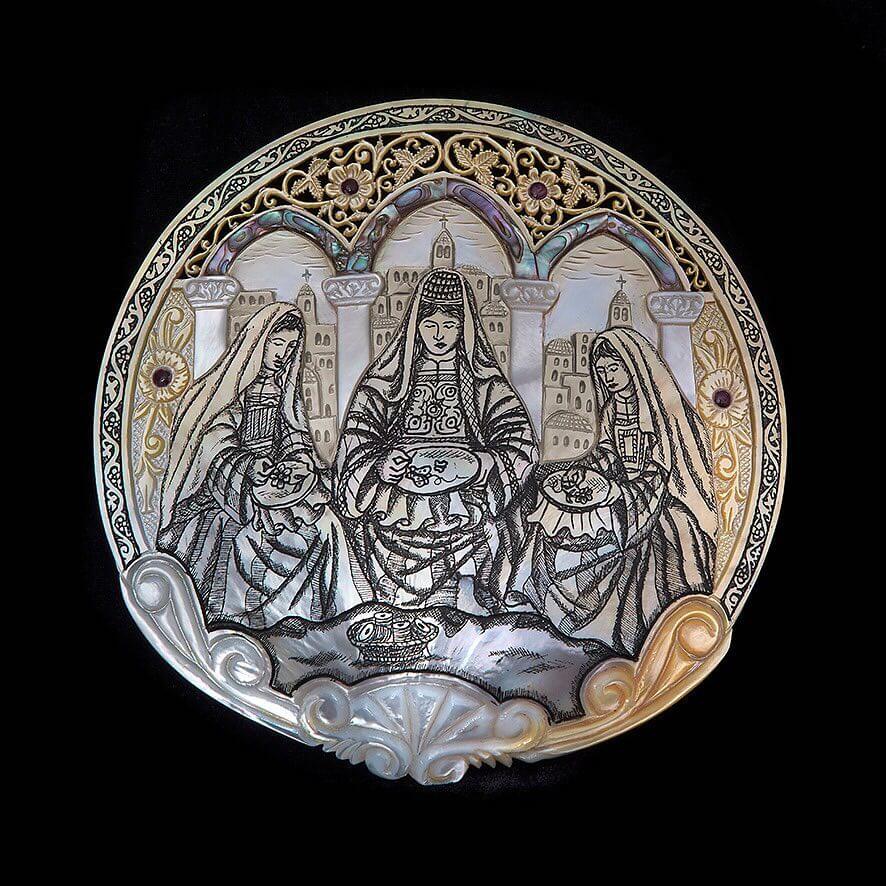
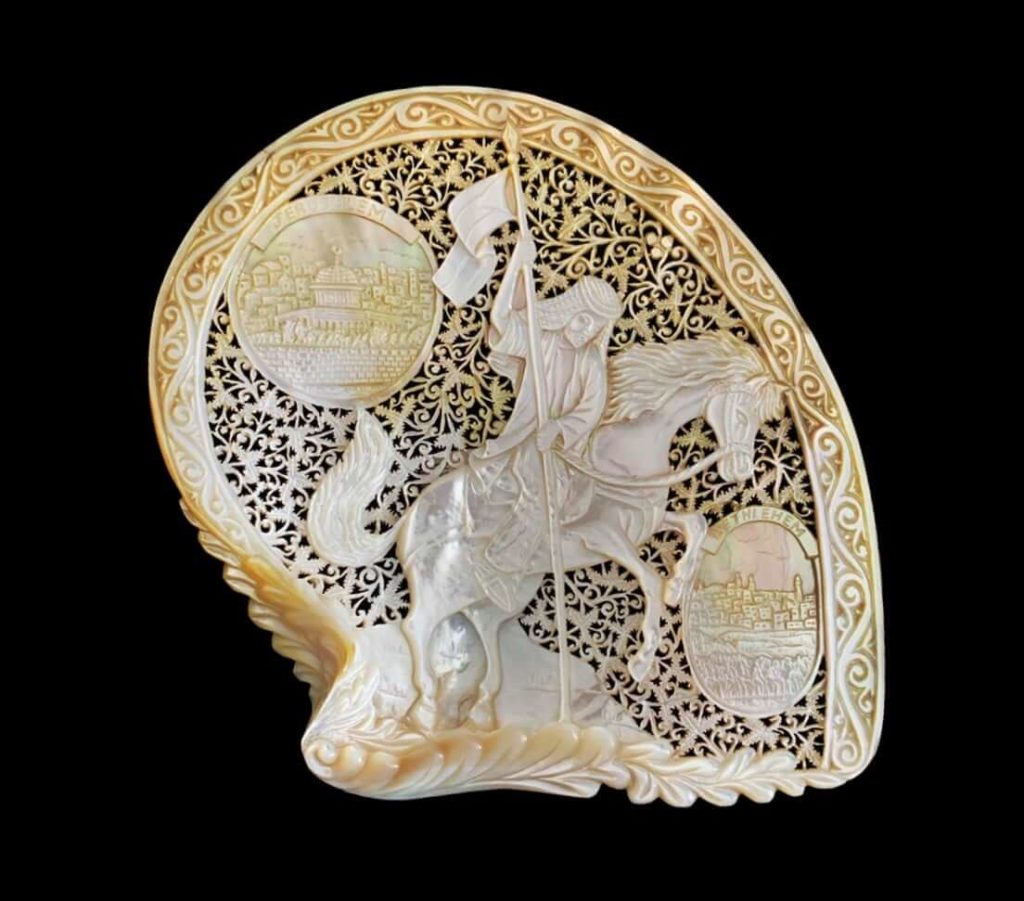
Currently, Taller Palestina is made up of an interdisciplinary group of five artists and artisans from Barranquilla and its surroundings, who continue to be trained in figurative carving, atauriques, and filigree tape, inlay, engraving, mosaic, cabinetmaking, and restoration. Since its foundation, the Taller Palestina has produced more than 3,500 works, both religious and secular. Among them are the coats of arms of Colombia, Chile, Venezuela, Brazil, Argentina, Guyana, Syria, Palestine, Lebanon and the Latin Patriarchate of Jerusalem, the Custody of the Holy Land, the Maronite Patriarchate of Lebanon, the Patriarchate of Jordan, and of the State of Qatar. Exclusive works have also been custom-made and exhibited in museums around the world such as the Monastery of the Incarnation and the Pilgrimage –the first in Madrid and the second in Santiago de Compostela–, the Mother of Pearl Museum in Australia, the Malacological Museum Piceno in Italy, the Oceanographic Museum of Monaco, the Museum of Islamic Art in Qatar, and Brigham Young University’s Museum of Peoples and Cultures in the United States.
